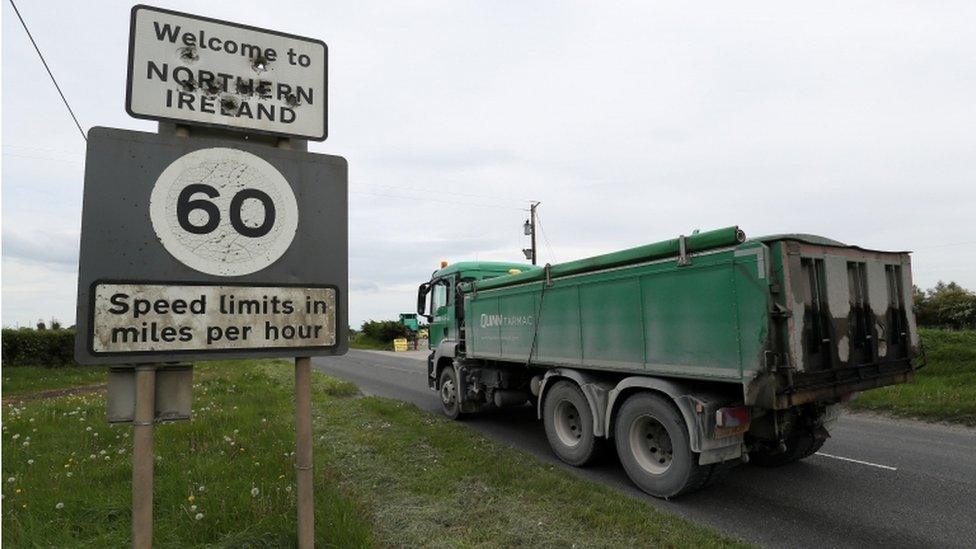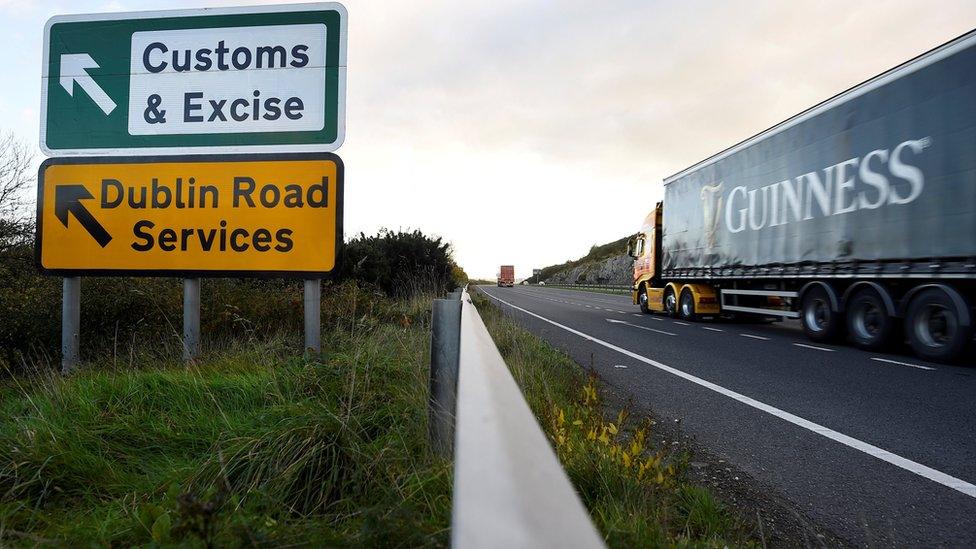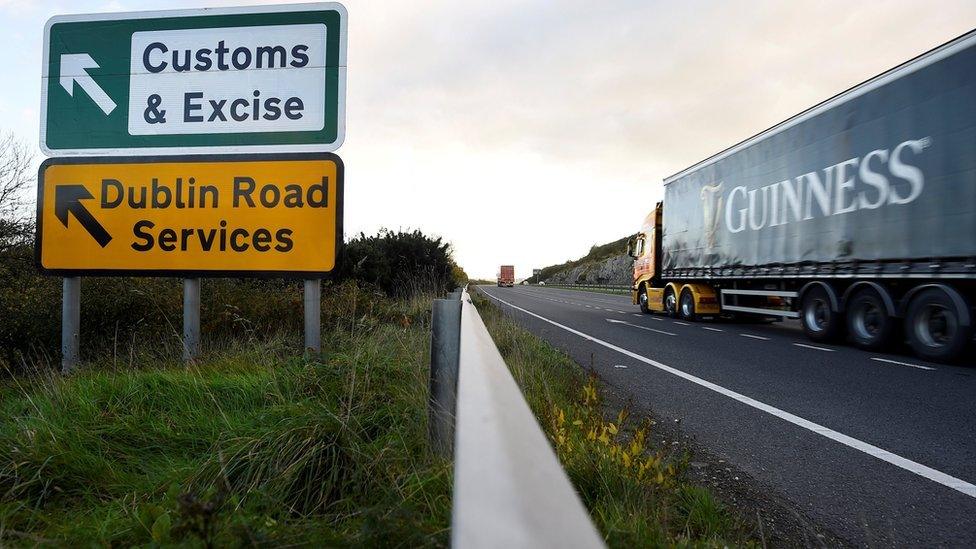Brexit: Business group to consider backstop alternatives
- Published
- comments

A business and trade union group will examine alternatives to the Northern Ireland backstop which has so far been a block to reaching an agreement on Brexit.
The backstop was designed to ensure a seamless border on the island of Ireland after the UK leaves the EU.
The UK government says the group will allow the views of businesses and employees to be represented.
Brexit Minister Robin Walker said finding a solution was "a priority".
The Business and Trade Union Alternative Arrangements Advisory Group will work with the Technical Alternative Arrangements Advisory Group - a body made up trade and customs experts - to consider the problem.
The government has made available £20m to support developing ideas that emerge from the advisory groups.
Members of the group will consider options for simplifying the movement of goods across borders such as trusted trader programmes and advanced use of data and IT systems.
The business and trade union group will meet for the first time on Wednesday. The event will be co-chaired by Mr Walker and Business Minister Andrew Stephenson.
Mr Walker said finding "alternative arrangements to replace the backstop" was a priority for the UK and the EU.
He added it was "vital" that any alternatives should be "informed by the views of those on the ground, whose goods cross the border every single day".

What is the Northern Ireland backstop?
Currently, there are no border posts, physical barriers or checks on people or goods crossing the border between Northern Ireland and the Republic of Ireland.
The backstop is a measure in the withdrawal agreement, which outgoing Prime Minister Theresa May struck with the EU, which is designed to ensure an open border remains after Brexit.
It comes into effect only if the deal deciding the future relationship between the UK and EU is not agreed by the end of the transition period (31 December 2020).
Until the deal on the future relationship is done, the backstop would keep the UK effectively inside the EU's customs union but with Northern Ireland also conforming to some rules of the single market.
Critics say a different status for Northern Ireland could threaten the existence of the United Kingdom and fear that the backstop could become permanent.

Foreign Secretary Jeremy Hunt - who is running to replace Theresa May as Conservative leader - has said he would try to renegotiate a deal with the EU "that doesn't involve the backstop as it's constituted".
When asked how he would solve the issue of the Irish border without the backstop, he said he would pursue a "technology-led solution".
His rival for the leadership Boris Johnson said there were "abundant, abundant technical fixes" that could be made to avoid border checks.
When challenged that these did not exist yet, Mr Johnson replied: "Well, they do actually... in very large measure they do, you have trusted trader schemes, all sorts of schemes that you could put into place."
But, he admitted, there was "no single magic bullet" to solve the issue.
- Published16 October 2019

- Published24 June 2019

- Published11 June 2019
